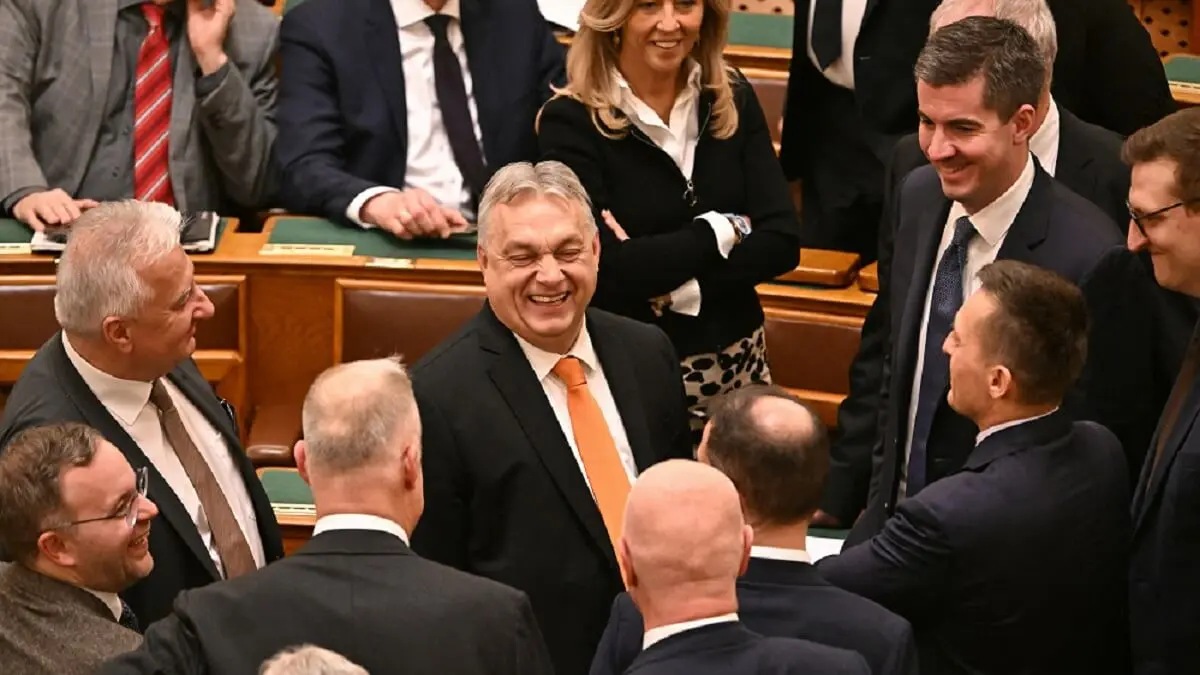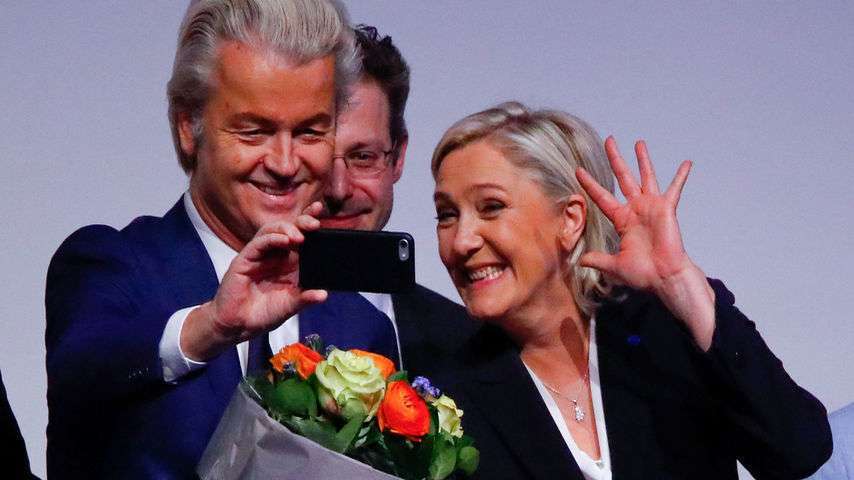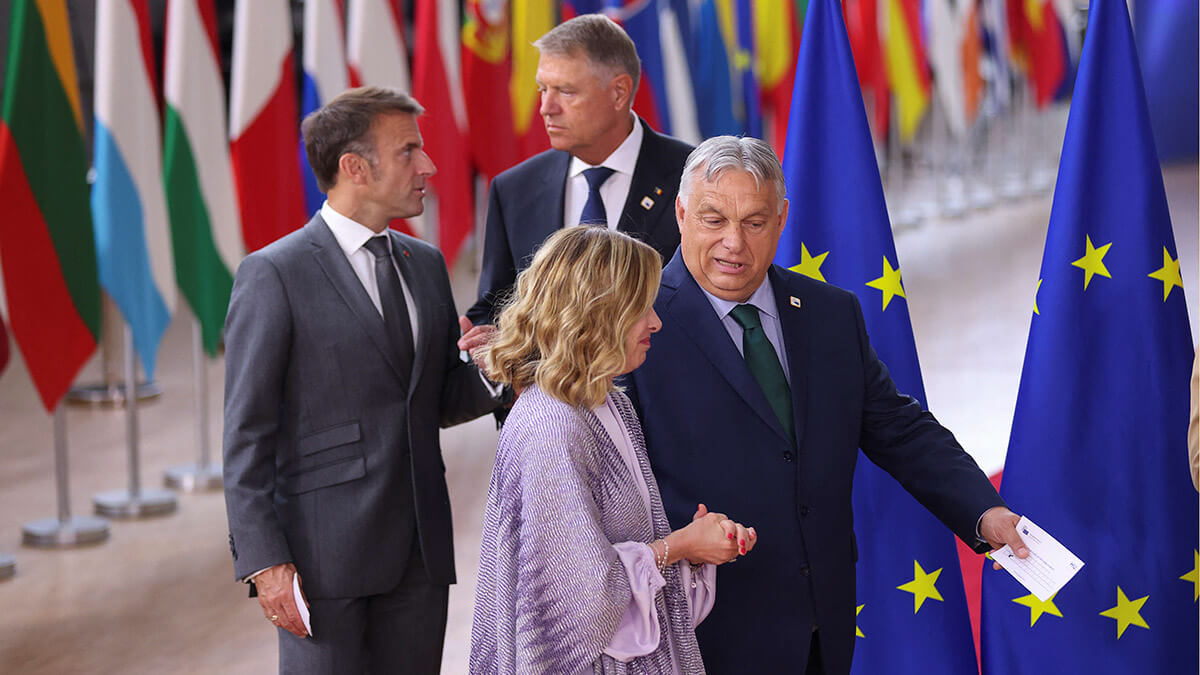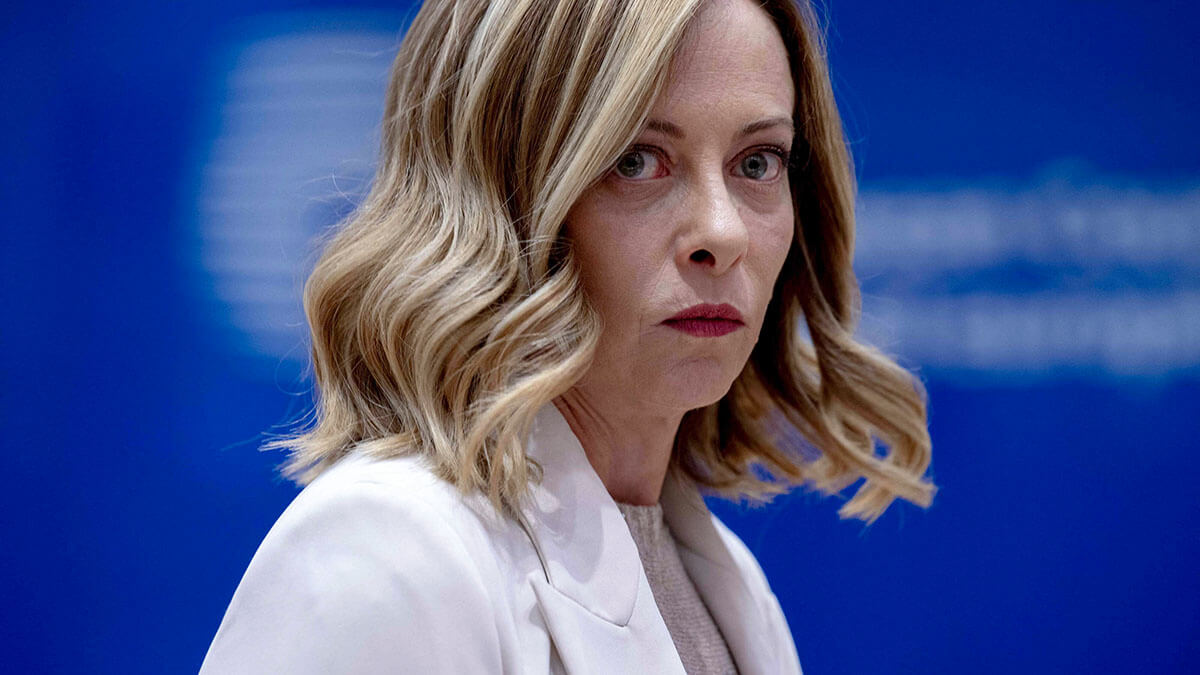Orbán and Le Pen already have their hard bloc in the European Parliament

A few days ago, the media France 24, attracted attention by giving an unexpected news during the political schism that not only France, but other European countries are experiencing: "Le Pen, Orbán and the patriots for Europe: Is the EU being undermined from within?”
The alliance between the two far-right leaders has not even given time to digest the political debacle in France after the results of the second round of elections: according to the official count, the three main blocs fell far short of the 289 seats needed to control the National Assembly made up of 577 seats.
The results showed 182 seats for the leftist New Popular Front coalition, which placed first, ahead of President Emmanuel Macron's centrist alliance with more than 168 seats. Marine Le Pen's far-right National Grouping and its allies came in third place with 143 seats. The surprising thing is that, in less than two years, regarding the 2022 general elections, they almost doubled their presence in the National Assembly when they achieved 89 legislators.
Le Pen has not even had time to react and in the face of the almost generalized rise of the far-right in Europe has proposed to ally with a new political bloc, registered as Patriots for Europe, before the new European Parliament (EP) emanated after the elections of June 6 to 9.
A political manoeuvre with the aim of joining the other far right and nationalist parties from various parts of the EU and that have achieved voice, vote and representation before the European parliament. What does it mean? Ability to gain more strength to block progressive initiatives proposed by the European Commission and the European Council.
It means the ability to block green policies; migration and asylum policies; progressive policies in favour of safe abortion; those that defend LGBTQ rights; to torpedo financial and military aid to Ukraine to resist the invasion and attacks of the Russian army and even to prevent Ukraine from becoming a member of the EU.
The political prism within the EP also shows an advance of radical right-wing parties in all its member countries and there are twenty-seven states. They are already the third political force within the European Parliament, and this means that they have a greater range of action to influence pro-European policy.
In the new European Parliament, the European People's Party (EPP) endorsed its victory this time with 189 seats; the Renew Europe Group obtained 83 seats and together they have 272 seats compared to the 223 that arise from adding the different left groups starting with the Socialists and Democrats Party with 135 seats; plus the 35 of the Left and the 53 of the Greens.
The radical right parties have managed to grab 20% of the seats, before they had 18.4%, now there are 130 but there is a group registered as Others that obtained 50 seats and one more that is listed as Unregistered that will have 45 seats of which, it is not known, how many MEPs, could have some ideological rapprochement in various programs and policies of the radical right.

Two days after the French elections, Marine Le Pen, of the National Grouping, joined forces with the side of Hungarian Prime Minister Viktor Orbán in order to achieve a powerful far-right bloc in the EU Parliament: Patriots for Europe that will also be led by Jordan Bardella, the 28-year-old she wanted as the new prime minister in France.
The Patriots for Europe group will be the third largest political group in the EP with 84 MEPs coming from twelve countries and with National Grouping as its leader with thirty MEPs.
Le Pen thus consummates her rapprochement with Viktor Orbán, the tough Hungarian prime minister is an ultraconservative politician who has ruled since May 29, 2010, and who, somehow, has become the biggest annoyance for the European Council and the European Commission.
This alliance between Le Pen and Orbán unites the interests of two rising political groups in their respective countries and, both, converge towards the same interests in addition to being two leaders who stand out in the EU for their closeness to the Russian dictator, Vladimir Putin, and oppose any kind of aid to Ukraine.
At a press conference, senior officials of the new Patriots for Europe group presented a vision of a party that opposes the centralization of power in Brussels, the headquarters of the main EU institutions, or having to suffer the dictates of the European Commission.

What is this new group looking for? Patriots for Europe aims to influence a new rebalancing of forces in the EU. Le Pen's strategy is all-encompassing: she not only wants the far-right to rule in France but also for the far-right to end up being a decisive political force in the future of the EU.
And for Orbán it is a way to regain some influence in the EP, after several periods of government in Hungary, his party has first gone from joining the European People's Party (EPP) to not belonging to any EU parliamentary group until he founded Patriots for Europe. He also does it when he shows his most radicalized face before immigration and before Russia's invasion of Ukraine being the most pro-Putin leader.
Sebastian Beit, wrote in France 24, that the internal battle in the European Parliament for the leadership of the extreme right should not be overlooked either. In Patriots for Europe there is not only the political group of Le Pen and Orbán, but also the Italian La Liga, by Matteo Salvini; the latter, does not support the Italian prime minister, Giorgia Meloni, despite the fact that she also militates in a radical right-wing party, Brothers of Italy, often pointed out for its fascist past.
Orban challenges the EU
Europe has been hit by the perfect political storm: the rising far-right, in turn France and Germany, two leading nations of the EU, are under the watch of extreme groups and with economic problems. In 2023, the Gallic GDP grew by 0.9% with an inflation of 4.9% and Germany, its GDP fell by 0.3% with an inflation of 5.9 percent.
In addition, it is an important electoral year for the renewal of the European Parliament, the European Council and the European Commission. Precisely, the socialist António Costa, former prime minister of Portugal, has taken over from Charles Michel at the head of the European Council and Úrsula Von der Leyen is making every effort negotiating to stay for another period at the head of the European Commission and that will be known during the votes that must be held in the EP during the third week of July.
Recently, Von der Leyen, who belongs to the group of the European People's Party, negotiated with Meloni that Italy (for the next five years) will chair the Competition portfolio at the European Commission and one of the three executive vice-presidencies. In this way it is achieved that Meloni's group in the EP does not vote against Von der Leyen's candidacy.

Orbán, for his part, has already announced that he will oppose. This period also coincides with Hungary presiding over the European Council on a rotating basis from the first of July, until December 31, this year.
Having just started the Hungarian presidency, Orbán has aleady made three strategic trips in one week: he visited the Ukrainian president, Volodymyr Zelensky, to whom he has asked for a ceasefire; then he travelled to the Kremlin to meet with his friend and ally, the Russian dictator, Vladimir Putin to talk about the war and the economic impact; and, finally, he held a meeting with his Chinese counterpart, Xi Jinping with whom he addressed the issue of tariffs on electric cars.
Much of the friction between Hungary and the rest of the European bloc is due to Orbán's proximity to Vladimir Putin, which he has no qualms about showing to the world.
Meloni the ultra-right pretty
In the last three quinquennium's, the European elections have been experienced as a real battle of survival of the EU, despite its 67 years of existence, its consolidation seems to be still far away.
Since the Treaty of Rome was signed on March 25, 1957 and became a cornerstone to create the framework that is today the EU with its twenty-seven member countries, this great effort of peace, unity, cooperation and seeking progress together, has not been exempt from discordant voices, especially nationalists and ultranationalists that more than add up, what they seek is to break the unity and re-enclose their respective nations, in their most local interests.

The European elections are not only a profound democratic exercise to shape the various forces of political representation of each of the member countries to bring their voice and their vote to the European Parliament, they are also an internal political thermometer to measure the political strength of each Government and its management capacity and how strong or weak it is in the field of legislative and citizen support.
The greater legislative representation of the far-right with all its different nuances will give a great opportunity to spread its message. Meloni wanted her political group to be an important hinge in the EP, but she has been marginalized by the other far-right groups that see her as a” moderate". In this regard, Iñigo Domínguez, wrote for El País, that a month after the European elections, the Italian prime minister has seen her plans fall apart until she feels ignored.

